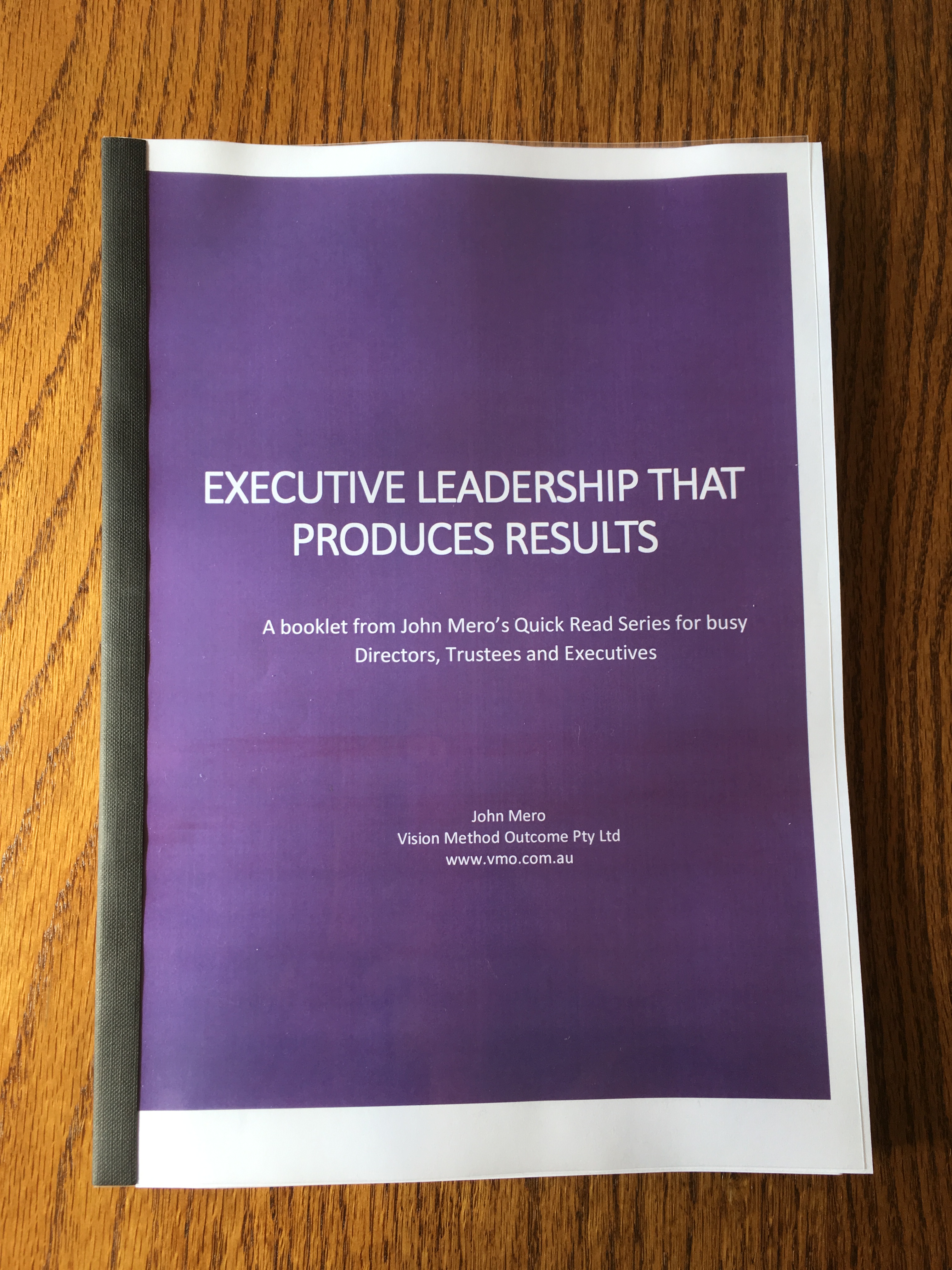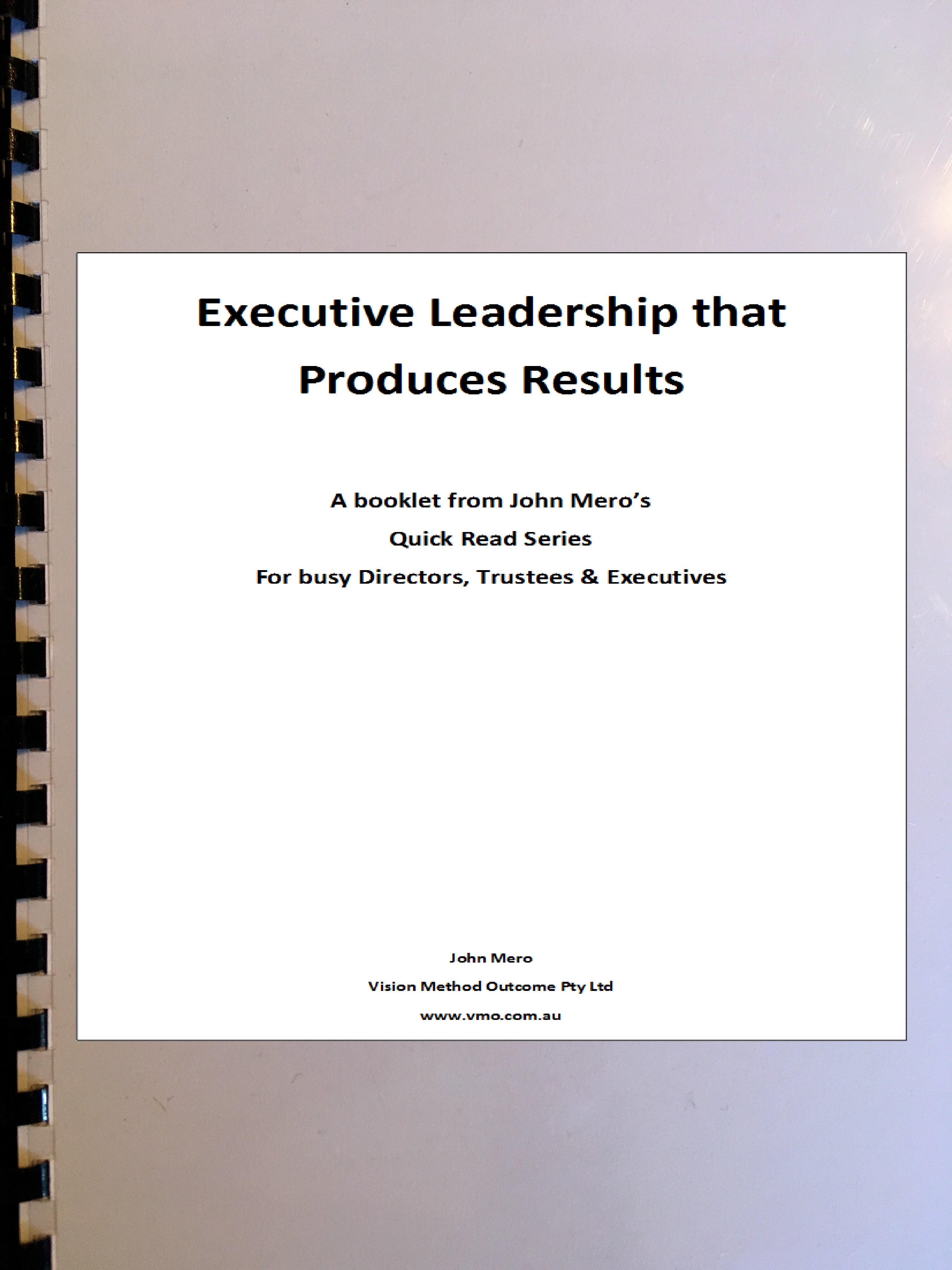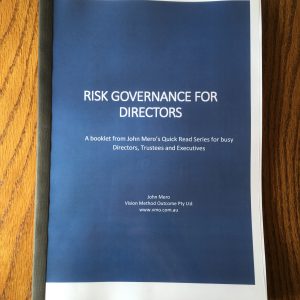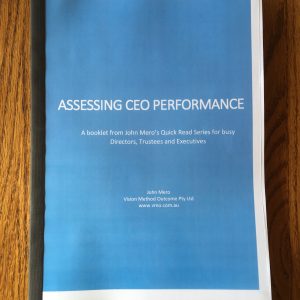Description
Executive Leadership is now a topic with a vast literature that can be difficult to sort through, understand and deploy. This booklet summarizes the major areas where Executive Leaders need to raise their awareness and develop new skills.
Executive Leaders have to make a difference otherwise, there is no point having them around. In broad terms, the Executive Leader must contribute to the organisation’s success in fulfilling its purpose and realizing its potential for the benefit of stakeholders. There are several things leaders at the top of any organisations are expected to deliver including the basics like balanced budgets and a strategic reform agenda leading to improved results. Many Executives Leaders, however, arrive at the top of the organisation poorly prepared for what the role requires. There are many signs when this has occurred including excessive stress and a tendency to stay busy and to confuse this with being effective. However, the greatest skill gaps in Executive Leaders, observed after working with over 800 organisations across multiple industries, are:
- A tendency to want to be liked rather than respected
- Not knowing the tools that can be used to lead organisational development
- Getting the pace and approach to change wrong
- Not sustaining a focus on the future
- Not empowering middle management, who in all organisations are vital to success
- Underestimating the need to respond to challenges and opportunities arising from the market, and
- The emergence of less tolerance for mistakes and noncompliance with evidence prosecutions are increasing in many industries.
Role clarity for leaders and managers is imperative, and often the first test of the Executive Leader is can they ensure there is:
- An agreed role definition with clear delegated authorities, especially in relation to the separation of functions with the Board
- A clear set of measurable KPIs
- Clarity about responsibilities, functions and the resources at your disposal.
While developing the skills, knowledge, and attitude needed to be an effective Executive Leader, is the priority; the attitude component is often the hardest to develop. Especially the emotional clarity needed to assume leadership in good times and bad and to help those who report to you to find a way forward, or deal effectively with the need for team renewal.
The author has worked with hundreds of executive teams and led significant improvements in company results by strengthening executive performance. Drawing on this experience he presents a comprehensive overview of the major factors needed for executives and executive teams to succeed.






